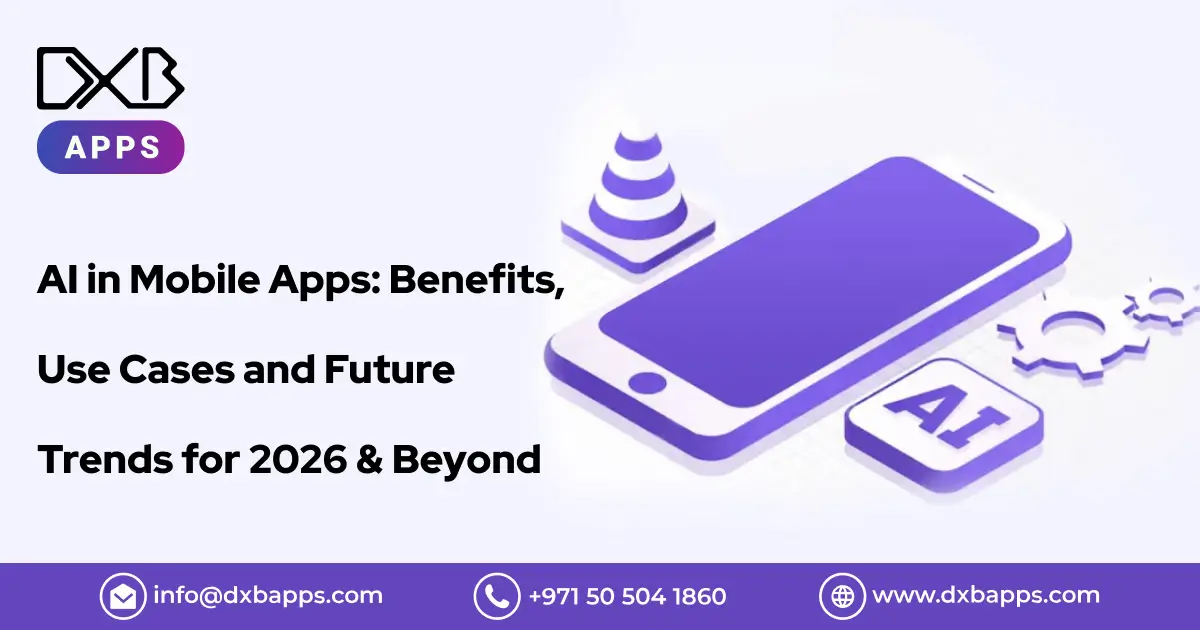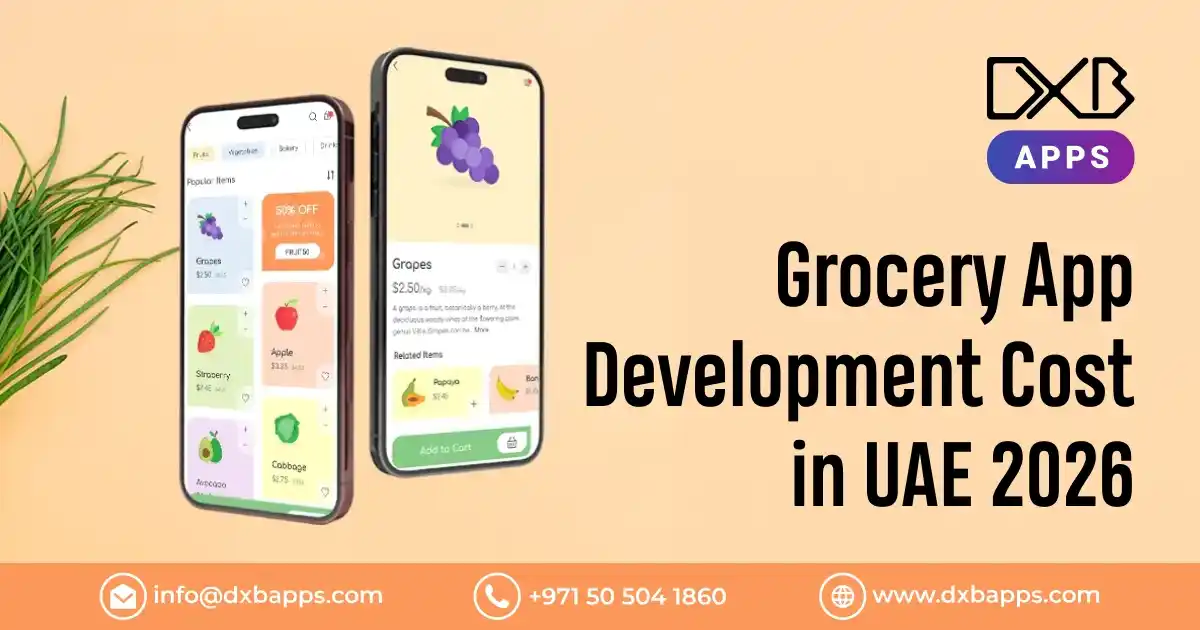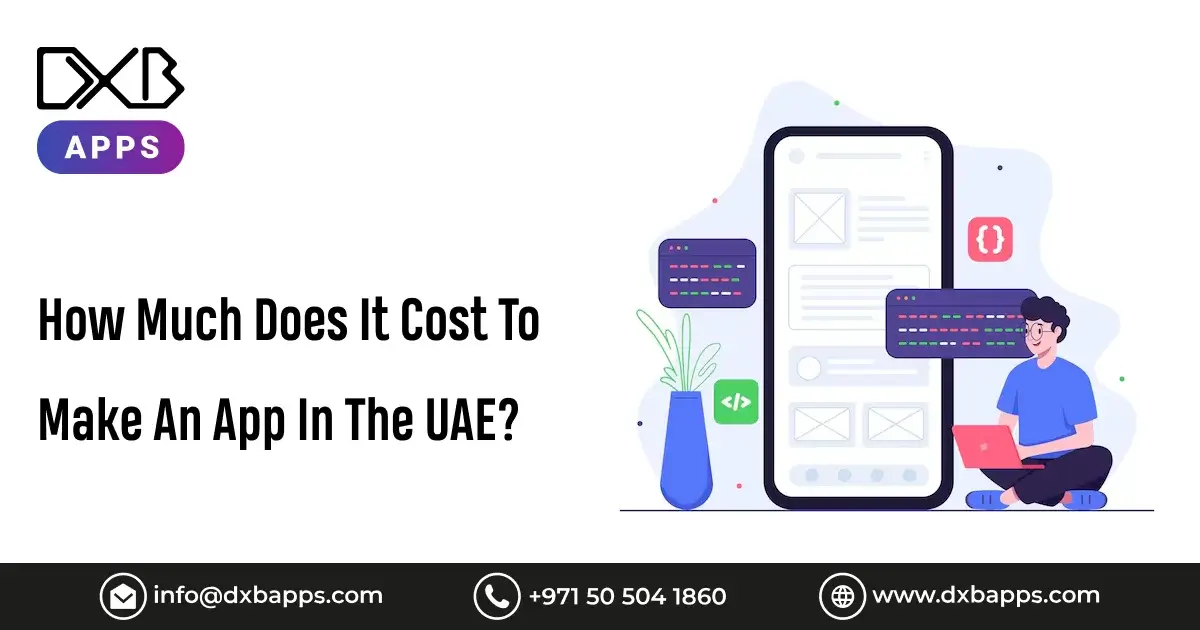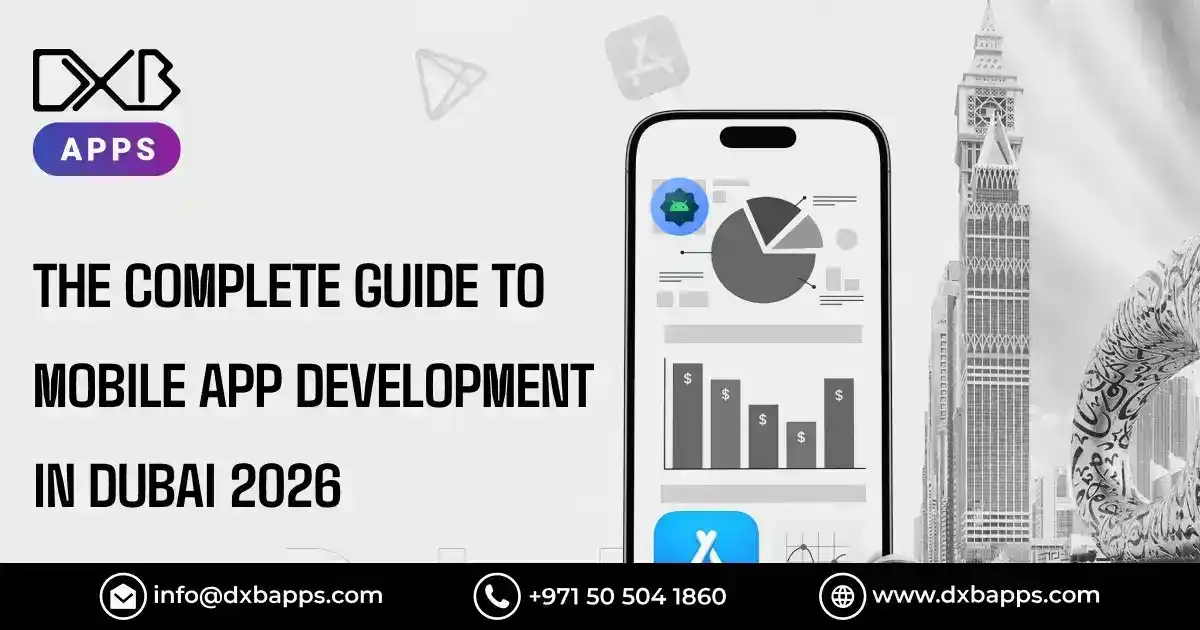Artificial Intelligence has transformed both the global sphere and modern business operations As businesses would look at anything, even the world of mobile applications is no exception. AI soon entered the domain of mobile application development; it made user experiences richer and added several functionalities to mobile applications. Be it recommendations based on a user's past preferences or voice recognition, artificial intelligence mobile app have brought a revolution, changing the way companies connect with their customers and the way consumers use their mobiles.
With this potential and strength of AI applications, mobile app intelligence can do something that would have otherwise been done by a much more complex system. Predictive typing, AI-powered chatbots, and facial recognition are only a few of the ways that AI has enabled mobile applications to be much more personal and intuitive regarding functionality.
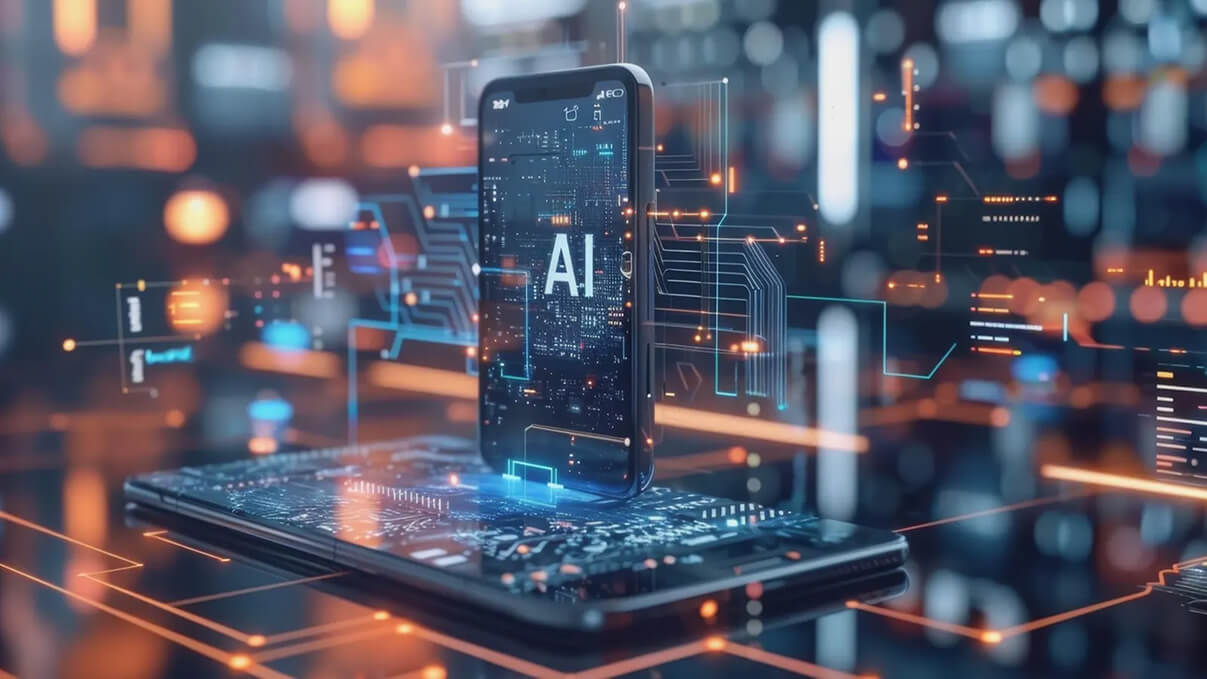
Benefits of AI in Mobile Apps
Artificial Intelligence is not a buzzword, but it has so many benefits in mobile applications. Here's how:
Improved User Experience
Customisation of an individual's experience on mobile applications is the most crucial benefit artificial intelligence would deliver by using them on mobile. This will give the apps opportunities to learn behaviour and preferences while letting them work and provide user preferences, thereby presenting experiences significantly targeted at what a user is searching for; thereby, such will create user engagement and satisfaction in the service delivered and make the application intuitively responsive toward the users of such an application.
"Embrace the future of mobile technology with AI—where innovation meets personalisation."
Efficiency Hike
AI would automate all the mundane tasks that could be replicated, such as data entry, navigation, and even content creation. Thanks to AI-driven features like voice commands and predictive text, mobile apps might enhance efficiency in operations. Users can execute tasks faster and more accurately, thus minimising the risks of human error and maximising productivity.
Smart Decision Making
As they process data and trends, artificial intelligence in mobile apps makes the best decisions based on those data and trends. Businesses need to strategise based on the input data. From live information to decisions through automation, it does not challenge businesses. At the same time, AI-powered app development allows businesses to automate and streamline the process through optimising with data-driven decision-making.
Good Security
The increasing adoption of mobile applications poses security challenges both to users and developers. AI has emerged as an area with great scope for developing stronger security features inside a mobile application. Ranging from facial recognition and fingerprint scanning to even behavioural biometrics, multiple layers of protection through AI make mobile applications identify and recognise possible cases of fraud and other security vulnerabilities.
Cost-Effective
Although developing an AI app is far more expensive, many costs are saved in the long term. AI minimizes errors as it does not require human labour. This eventually reduces operational costs. Organizations can also employ AI to increase resource usage to the maximum levels. Hence, it decreases wastage costs.
According to Statista, the global AI market size is expected to grow from $136.55 billion in 2022 to $1.81 trillion by 2030, with a CAGR of 38.1%.
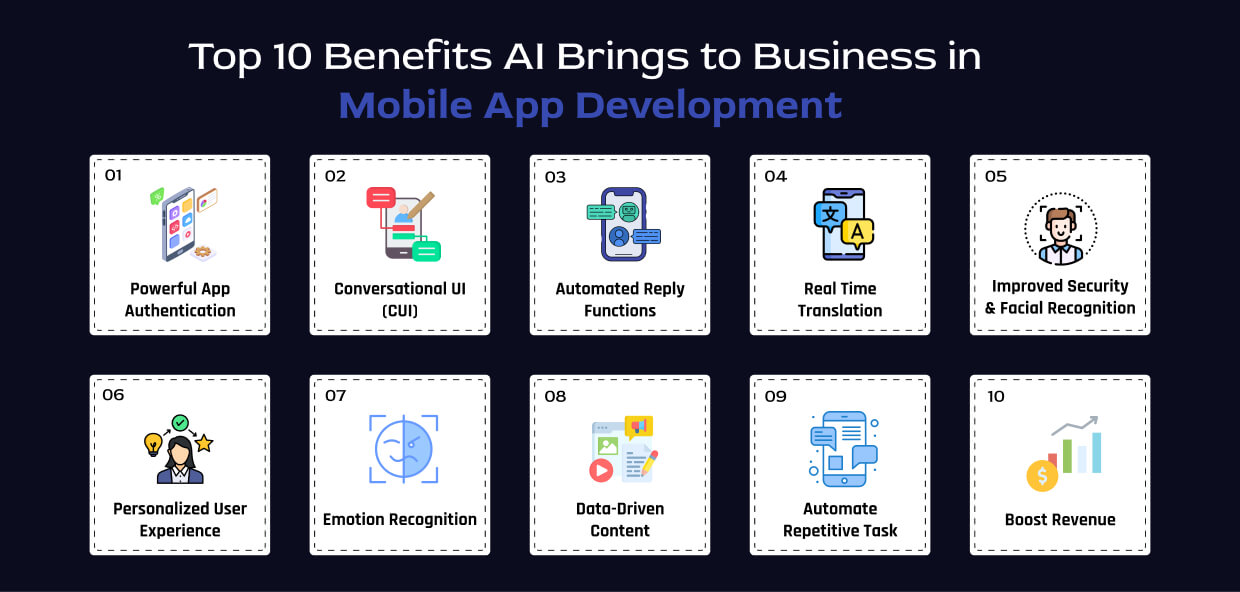
AI in Mobile App Use Cases
Having discussed the pros in detail, let's discuss how AI is used in mobile applications in various domains:
Personal Assistants
The three major AI in mobile applications available are Siri, Google Assistant, and Amazon Alexa. These applications accept voice instructions along with natural language processing, following which they complete duties like sending messages, retrieving online content, and offering reminder alerts. AI makes the assistants more intelligent and capable of handling more complex commands over time.
Chatbots and Customer Support
AI-based chatbots transformed customer service support by bringing instant customer inquiry handling to all frontlines. Such mobile apps integrate AI-powered chatbots, which enable customer support teams to answer inquiries and offer recommendations to customers. With this system, customers receive continuous support without human involvement.
Health Apps
AI is widely used in health applications to track the health status of patients, analyse medical data, and predict potential health risks. For example, it can keep track of an individual's fitness workout data through an application on fitness and allow the user to have a personal workout schedule along with alerting the user regarding anything abnormal found. Similarly, AI-enabled applications may help doctors make diagnoses by scanning medical images or reviewing patient records for early symptoms of diseases.
E-commerce and Retail
AI has changed the e-commerce application to be much more personal. Mobile apps may suggest something to the user based on his browsing history and previously purchased items with AI algorithms. AI also helps to enhance inventory management, customer services, and detection of fraud to make it a smoother experience and secure process.
Gaming and Entertainment
The gaming industry has reaped much in terms of integration with AI. Mobile games can have more intelligent NPCs, improve engaging storylines, and even adjust the difficulty level based on the player's skill level. Real-time rendering is also possible, meaning that the visual experience may improve overall gameplay.
"AI in mobile apps is not just automating things; it's about creating smarter, more intuitive experiences that resonate with users and meet their needs in real-time."
Future Trends of AI in Mobile Apps (2026 and Beyond)
In the years ahead, looking forward to 2026 and beyond, AI in mobile apps will be much more exciting. The key trends leading the way during this period are as follows:
Increased AI and AR Integration
Augmented Reality (AR) has revolutionised mobile applications since the previous time period, specifically impacting retail businesses and entertainment facilities. Future mobile applications will integrate artificial intelligence and augmented reality technologies to develop interactive and better experiences for upcoming developmental cycles. For instance, AI can track a user's movement and preferences for an AR application to build a customised environment or deliver location-based content in real time.
Edge AI
Edge AI refers to processing data locally at devices instead of at cloud servers. This leads to mobile applications that function faster, more securely and are less reliant on the internet. This implies that Edge AI will feature right at the heart of performances, such as in applications related to facial recognition, voice assistants, or even games if consumers purchase and have fun with better phones.
AI-Driven Automation
The future of mobile applications involves more automation by artificial intelligence. So, whether it includes curating the news feed or auto-organizing photos to create content about user preference, it will simply know what one needs. Such aspects would greatly lessen the user's efforts because they would easily get what the application proposes or suggests while keeping the entire interface much easier to use for anyone.
Hyper-personalization
The prevalence of AI for creating customised experiences will persist because AI produces data from exclusive user preferences. AI operates through personalised platforms to deliver specific fitness instructions combined with mood-relevant media suggestions that serve users.
Improved Voice Interactions
Voice assistants will be integrated into mobile applications. As mobile apps' intelligence increases, more smart voice recognition systems that can understand complex commands, multilingual support, and personalised interaction will be expected. Voice interfaces will become the norm of most mobile applications.
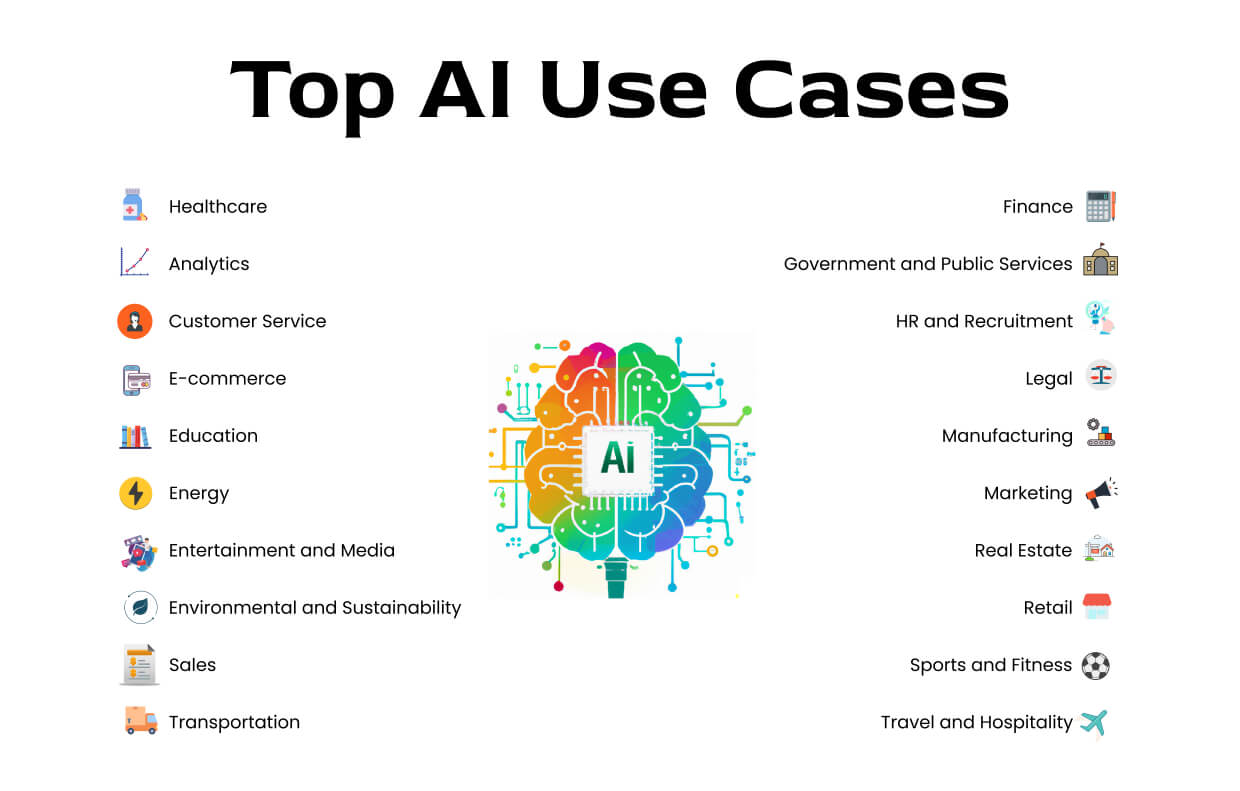
How DXB APPS Develop the Best AI App in the Middle East?
DXB APPS specialises in developing the best Mobile App Development Dubai solutions delivering innovative and intelligent experiences. We masterfully fuse artificial intelligence into mobile applications to drive deep user engagement and meaningful business outcomes as the leading Mobile App Development Company. We take the latest technology in artificial intelligence and drive the Mobile App Development Abu Dhabi that is not only friendly to use but also smart and adaptive. Our mobile app development company in Saudi Arabia offer AI solutions if you are based anywhere in Abu Dhabi, Dubai, or Saudi Arabia. This will help your business and ensure you are ahead of the competition.
Conclusion
It is no longer science fiction but a living reality changing the industry; it varies from an enhanced user experience to automated and personalised ways of transforming their engagement with mobile technology. The year 2026 and the possibility of using Artificial Intelligence in mobile applications would be inevitable with even more exciting possibilities.
The business, in order to be ahead of the curve in providing the best experience to its users, will need to include AI-powered mobile apps. All possibilities are quite vast for any industry retail, healthcare, gaming, or any other, with an AI app-building possibility. The future is indeed quite promising.
Faqs
What is Artificial Intelligence in mobile apps?
It will use AI technologies to enhance user experience and improve efficiency and automation for delivering personalised content and services through mobile applications.
How does AI enhance the performance of mobile applications?
AI will make the app faster, automate tasks, provide real-time insights, personalize experiences, and improve security through fraud detection and biometric authentication.
Is AI Costly to Use in Mobile Applications?
Though AI-based application development involves a significant initial investment, it is supposed to reduce expenses later by eliminating many operations that would otherwise have to be executed by human personnel.

